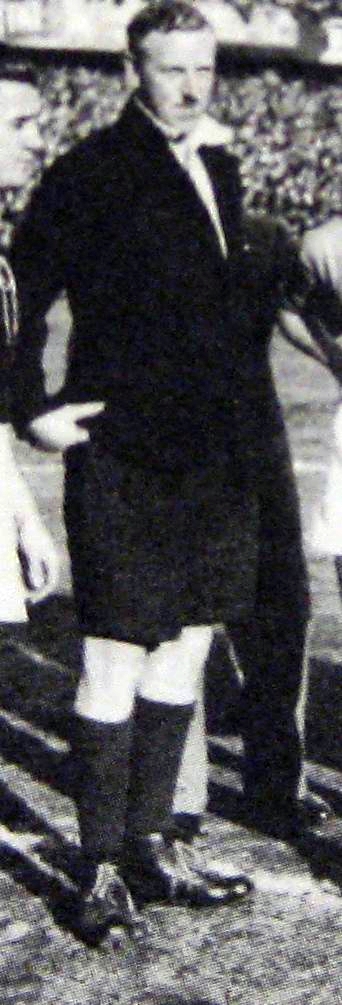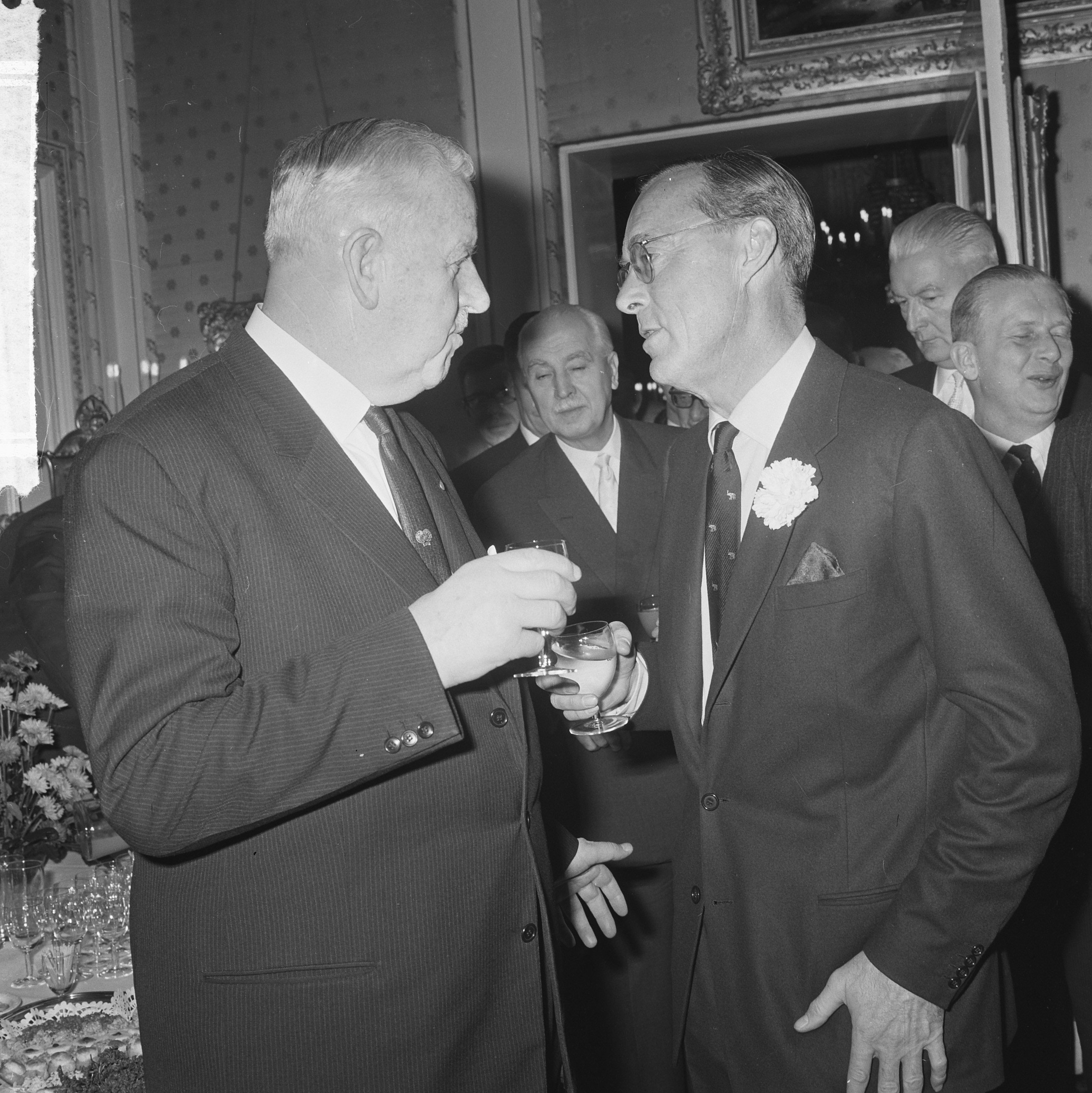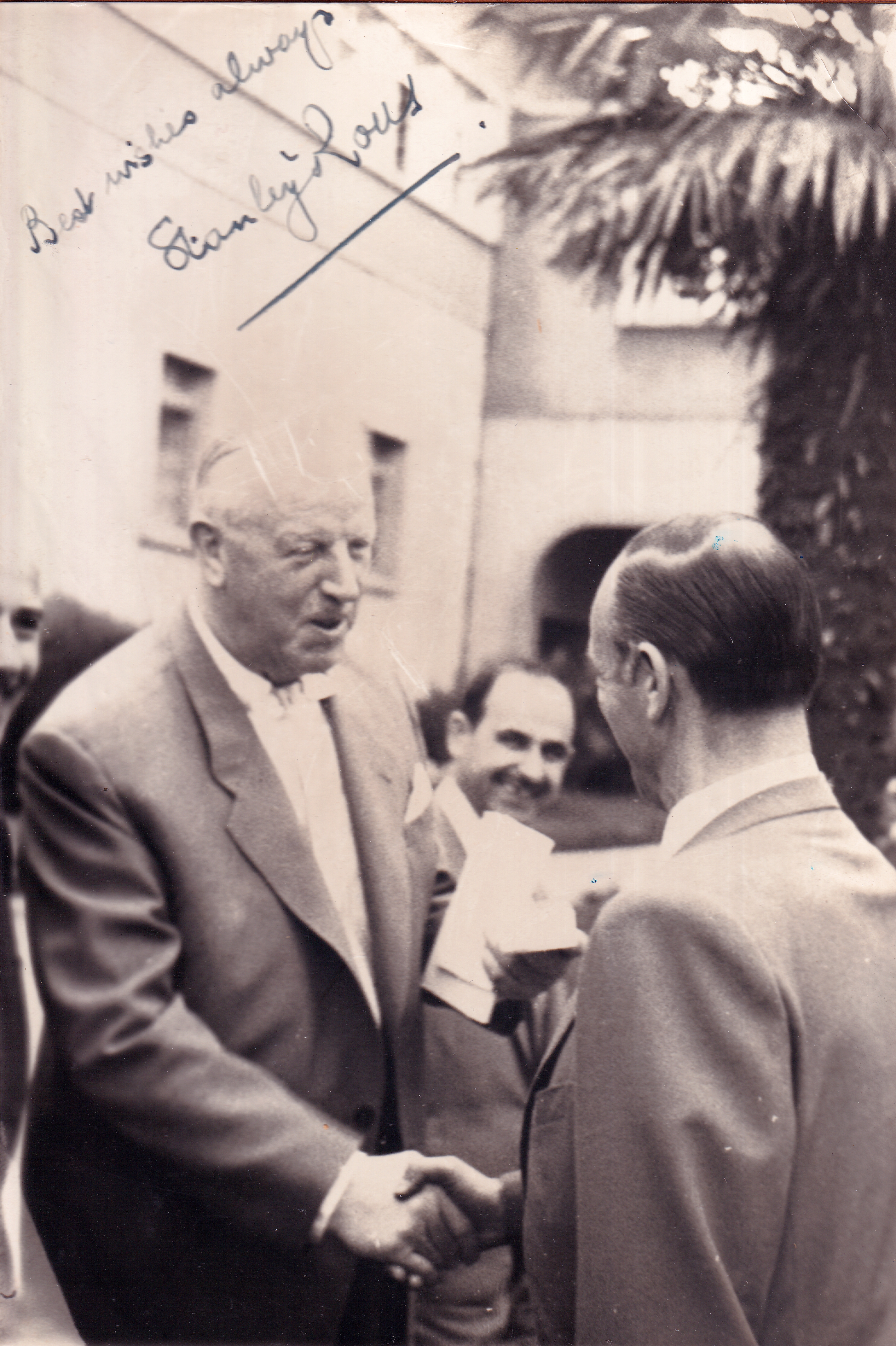1. Overview
Sir Stanley Ford Rous (1895-1986) was a prominent English football administrator and referee, best known for his influential tenure as the 6th President of FIFA from 1961 to 1974, and as secretary of The Football Association from 1934 to 1962. A former amateur goalkeeper and international referee, Rous significantly contributed to the modernization of football's regulations, notably by rewriting the Laws of the Game in 1938 to enhance clarity and by pioneering the diagonal system of control for refereeing. His presidency saw the expansion of FIFA and the historic 1966 FIFA World Cup victory for England. However, his leadership was also marked by significant controversies, particularly his unwavering support for the apartheid-era South Africa and his insistence on playing a World Cup qualifier in Chile following the military coup, drawing widespread criticism for overlooking human rights concerns and social justice issues. These stances ultimately contributed to his defeat in the 1974 FIFA presidential election.
2. Early life
Stanley Rous was born on April 25, 1895, in Mutford, a village near Lowestoft in East Suffolk, England. He was the eldest son of a provision master. Rous received his early education at Sir John Leman School in Beccles. He initially trained as a teacher in Beccles before his service in World War I. During the war, he served as a non-commissioned officer in the 272nd Brigade of the Royal Field Artillery (East Anglian), seeing action in France, Palestine, Egypt, and Lebanon. After the war, Rous continued his education at St Luke's College in Exeter. He then became a sports teacher at Watford Grammar School for Boys, where he was notably responsible for shifting the school's primary sport from football to rugby.
3. Playing career
Rous played football at an amateur level as a goalkeeper. His club affiliations included Kirkley and Lowestoft Town. His playing career was cut short when he sustained a wrist injury, forcing him to retire from the field.
4. Refereeing career
Rous developed an interest in refereeing while observing matches involving Norwich City. He qualified as a referee during his studies at St Luke's College and became a Football League referee in 1927. He primarily officiated in the Football League Division Two and Football League Division Three North and Football League Division Three South matches. His debut as an international referee occurred on March 13, 1927, when he officiated a friendly match between Belgium and the Netherlands in the Bosuilstadion in Antwerp, which Belgium won 2-0. Throughout his career, he officiated a total of 34 international matches.

Rous reached the pinnacle of his refereeing career when he was appointed to officiate the 1934 FA Cup Final at Wembley Stadium. In this match, Manchester City defeated Portsmouth by a score of 2-1. The day after the FA Cup Final, having traveled to Belgium to officiate another international match, Rous announced his retirement from refereeing.
5. Football administration
Following his retirement from refereeing, Stanley Rous transitioned into the realm of football administration, where he would hold significant positions at both national and international levels.
5.1. Secretary of The Football Association
Rous served as the secretary of The Football Association (FA) from 1934 until 1962. During his long tenure, he played a crucial role in the administration and development of English football.
5.2. President of FIFA
After his time at the FA, Rous ascended to the presidency of the FIFA (Fédération Internationale de Football Associations), serving as its 6th president from 1961 to 1974. Prior to this, he joined the UEFA Executive Committee in 1958, becoming vice-president in March 1960, before leaving to become FIFA president the following year. His leadership saw both significant milestones and considerable challenges.
5.2.1. Tenure and Key Events
During his presidency, Rous oversaw a period of growth for FIFA. A notable event during his tenure was the 1966 FIFA World Cup held in England, which culminated in the host nation's victory. Rous himself presented the trophy to the victorious English team. His administrative activities included efforts to expand FIFA's global reach, though these were often overshadowed by political controversies.

5.2.2. Controversies and Criticisms
Rous's presidency was marked by several contentious issues, particularly his stance on apartheid in South Africa and the political situation in Chile, which drew significant criticism due to their human rights implications.
Rous was a vocal supporter of the South African Football Association during the apartheid era. South Africa had been admitted to FIFA in 1954 but was expelled from the Confederation of African Football (CAF) in 1958. Following their failure to comply with anti-discrimination rules, they were suspended from FIFA in 1961. In 1963, Rous traveled to South Africa to "investigate" the state of football, concluding that the sport might disappear in the country if they were not readmitted. This led to their temporary readmission to FIFA, despite the South African Football Association proposing to field an all-white team for the 1966 World Cup finals and an all-black team in 1970. This readmission was short-lived. At FIFA's subsequent annual congress in Tokyo, a significant increase in African and Asian representation led to South Africa's suspension once again. They were ultimately expelled from FIFA in 1976. Despite this, Rous continued to advocate for their readmission, even proposing the establishment of a Southern African confederation to allow South Africa and Rhodesia (which was itself expelled in 1970) to compete internationally. However, he was forced to abandon this plan after CAF members threatened a mass withdrawal from FIFA at the 1966 FIFA congress in London, highlighting the strong global opposition to his stance.
Another major controversy arose in 1973 when Rous insisted that the USSR team play a World Cup qualifier against Chile in the aftermath of General Pinochet's military coup. This was at a time when thousands of political prisoners were being held and tortured in the Estadio Nacional Julio Martínez Prádanos sports stadium, the designated venue for the match. The USSR team refused to play under such circumstances, citing humanitarian concerns, leading to Chile's automatic qualification for the 1974 FIFA World Cup. Chile subsequently failed to advance from a group that included West Germany, East Germany, and Australia. Rous's decision to prioritize the fixture over the grave human rights situation drew widespread international condemnation.
5.2.3. 1974 Re-election Campaign and Retirement
In 1974, Rous sought re-election as FIFA president. However, he was defeated by João Havelange of Brazil, whose vigorous campaigning garnered significant support. Rous's defeat was also attributed to growing discontent among non-European nations regarding European dominance within FIFA, as well as strong opposition from African and Asian countries due to his controversial pro-South African stance. Upon his retirement from the presidency on June 11, 1974, he was nominated as FIFA Honorary President.

6. Contributions to Football Rules
Stanley Rous made significant and lasting contributions to the formalization and standardization of football's regulations and refereeing practices, which are still foundational to the sport today.
6.1. Revision of the Laws of the Game
In 1938, Rous undertook the monumental task of rewriting the Laws of the Game. His objective was to simplify and clarify the existing rules, making them easier for players, referees, and spectators to understand. This revision greatly improved the accessibility and consistency of football's regulations worldwide.
6.2. Introduction of the Diagonal System of Control
Rous is widely credited with pioneering the implementation of the diagonal system of control for referees as a standard practice in football. This system outlines the optimal positioning and movement of the referee and assistant referees on the field to ensure comprehensive coverage and effective game management. While some sources, like Belgian referee John Langenus, suggest that similar attempts at scientific positioning were made by referees in his country, Rous's efforts were instrumental in formalizing and promoting this system globally, enhancing the efficiency and fairness of officiating.
7. Personal life
Beyond his professional achievements in football, Stanley Rous had a private life marked by marriage and personal recognition.
7.1. Marriage and Family
Stanley Rous married Adrienne Gacon in 1924. They did not have any children. Rous was also known to be a friend of Ivo Schricker, one of the founding members of FIFA (1877-1962). He was a freemason, attending Exonian Lodge No. 3415 in London.
7.2. Honours and Awards
Rous received significant national recognition for his contributions. He was appointed a CBE in 1943 and was subsequently knighted in the 1949 New Year Honours, granting him the title "Sir."
8. Death
Stanley Rous's life concluded in 1986.
8.1. Circumstances of Death
Sir Stanley Rous passed away on July 18, 1986, in Paddington, London, at the age of 91. The cause of his death was leukaemia. A service in his memory was held at Westminster Abbey in September of the same year. He is buried alongside his wife, Lady Rous, in the Holy Trinity Church in the Lickey Hills, located near both Bromsgrove and Birmingham.
9. Legacy and Commemoration
Stanley Rous's extensive career left a complex and multifaceted legacy in the world of football, encompassing both widely praised contributions and significant criticisms.
9.1. Positive Assessment
Rous is positively remembered for his profound impact on the structure and governance of football. His administrative roles, particularly as secretary of The Football Association and president of FIFA, were instrumental in shaping the modern game. His most enduring contributions include the comprehensive revision of the Laws of the Game in 1938, which made the rules clearer and more accessible, and his promotion of the diagonal system of control, which revolutionized refereeing practices. These efforts standardized the sport and enhanced its fairness globally. The short-lived Rous Cup was named in his honor, as was the Rous Stand at Watford F.C.'s Vicarage Road ground, though it was later renamed the Graham Taylor Stand in 2014. He also authored "A History of the Laws of Association Football," published in 1974, and "Football Worlds: A Lifetime in Sport," published in 1978, further cementing his intellectual legacy in the sport.
9.2. Criticisms and Controversies
Despite his administrative achievements, Rous's legacy is significantly complicated by his controversial political stances, which attracted strong criticism, particularly concerning human rights and social justice. His unwavering support for the apartheid regime in South Africa, including efforts to readmit them to international football despite their discriminatory policies, was widely condemned by African and Asian nations and ultimately contributed to his downfall. Similarly, his insistence that the Soviet Union play a World Cup qualifier in Chile following a military coup, at a time when the stadium was being used to imprison and torture political dissidents, demonstrated a perceived disregard for humanitarian concerns in favor of sporting expediency. These actions cast a shadow over his presidency, highlighting a tension between the political neutrality often espoused by sports organizations and the moral imperative to uphold human rights.
9.3. Commemorations
Beyond the aforementioned Rous Cup and the former Rous Stand at Vicarage Road, Rous was honored with a memorial service at Westminster Abbey following his death, signifying his stature within British society and football. His burial alongside his wife in the Holy Trinity Church in the Lickey Hills also serves as a lasting commemoration of his life.